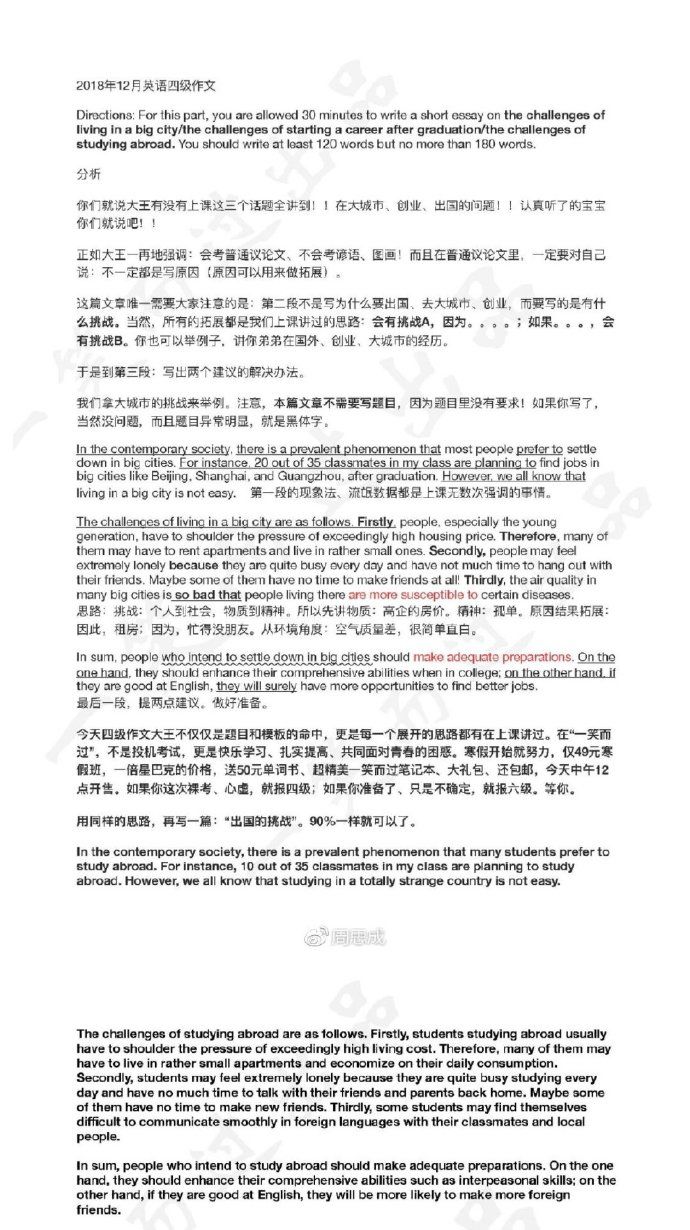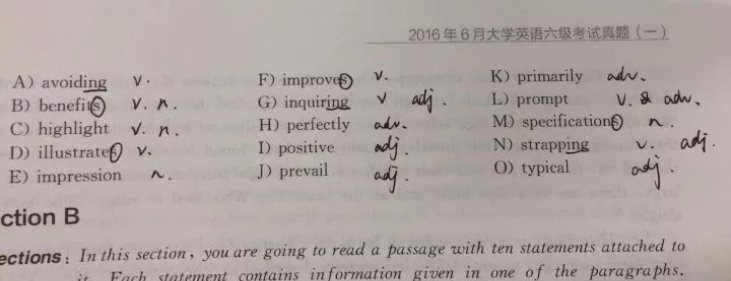LSAT模拟试题:LSAT模拟试题TEST4逻辑2e
|
21. Jane: Professor Harper's ideas for modifying the design of guitars are of no value because there is no general agreement among musicians as to what a guitar should sound like and. Consequently, no widely accepted basis for evaluating the merits of a guitar's sound. Mark: What's more, Harper's ideas have had enough time to be adopted if they really resulted in superior sound. It took only ten years for the Torres design for guitars to be almost universally adopted because of the improvement it makes in tonal quality. Which one of the following most accurately describes the relationship between Jane's argument and Mark's argument? (A) Mark's argument shows how a weakness in Jane's argument can be overcome. (B) Mark's argument has a premise in common with Jane's argument (C) Mark and Jane use similar techniques to argue for different conclusions. (D) Mark's argument restates Jane's argument in other terms. (E) Mark's argument and Jane's argument are based on conflicting suppositions. Questions 22-23 Doctors in Britain have long suspected that patients who wear tinted eyeglasses are abnormally prone to depression and hypochondria. Psychological tests given there to hospital patients admitted for physical complaints like heart pain and digestive distress confirmed such a relationship. Perhaps people whose relationship to the world is psychologically painful choose such glasses to reduce visual stimulation, which is perceived as irritating. At any rate, it can be concluded that when such glasses are worn, it is because the wearer has a tendency to be depressed or hypochondriacal 22. The argument assumes which one of the following? (A) Depression is not caused in some cases by an organic condition of the body. (B) Wearers do not think of the tinted glasses as a means of distancing themselves from ocher people. (C) Depression can have many causes, including actual conditions about which it is reasonable for anyone to be depressed. (D) For hypochondriacs wearing tinted glasses, the glasses serve as a visual signal to others that the wearer's health is delicate. (E) The tinting does not dim light to the eye enough to depress the wearer's mood substantially. 23. Each of the following, if true, weakens the argument EXCEPT: (A) Some people wear tinted glasses not because they choose to do so but because a medical condition of their eyes forces them to do so. (B) Even a depressed or hypochondriacal person can have valid medical complaints, so a doctor should perform all the usual objective tests in diagnosing such persons. (C) The confirmatory tests were not done for places such as western North America where the usual quality of light differs from that prevailing in Britain. (D) Fashions with respect to wearing tinted glasses differ in different parts of the world. (E) At the hospitals where the tests were given, patients who were admitted for conditions less ambiguous than heart pain or digestive distress did not show the relationship between tinted glasses and depression or hypochondria. 24. The only fossilized bones of large prey found in and around settlements of early humans bear teeth marks of nonhuman predators on areas of the skeleton that had the most meal, and cut marks made by humans on the areas that had the least meat. The predators that hunted large prey invariably are the meatiest parts of the carcasses, leaving uneaten remains behind. If the information above is true, it provides the most support for which one of the following? (A) Early humans were predators of small prey, not of large prey. (B) Early humans ate fruits and edible roots as well as meat (C) Early humans would have been more effective hunters of large prey if they had hunted in large groups rather than individually. (D) Early humans were not hunters of large prey but scavenged the uneaten remains of prey killed by other predators. (E) Early humans were nomadic, and their settlements followed the migratory patterns of predators of large prey. 25. George: A well-known educator claims that children who are read to when they are very young are more likely to enjoy reading when they grow up than are children who were not read to. But this claim is clearly false. My cousin Emory was regularly read to as a child and as an adult he seldom reads for pleasure, whereas no one read to me and reading is now my favorite form of relaxation. Ursula: You and Emory prove nothing in this case. Your experience is enough to refute the claim that all avid adult readers were read to as children, but what the educator said about reading to children is not that sort of claim. Which one of the following describes a flaw in Georges reasoning? (A) He treats his own experience and the experiences of other members of his own family as though they have more weight as evidence than do the experiences of other people. (B) He does not distinguish between the quality and the quantity of the books that adults read to Emory when Emory was a child. (C) He overlooks the well-known fact that not all reading is equally relaxing. (D) He fails to establish that the claim made by this particular educator accurately reflects the position held by the majority of educators. (E) He attempts to refute a general claim by reference to nonconforming cases, although the claim is consistent with the occurrence of such cases. |








